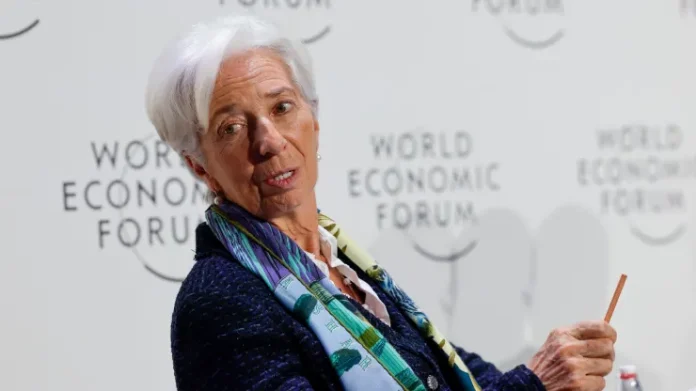European Central Bank (ECB) President Christine Lagarde lashed out at economists on January 17, accusing them of having “blind faith” in their models, which often bear little relation to reality.
Speaking at an event entitled How to Trust the Economy at the World Economic Forum in Davos, the ECB chief also suggested that economists constitute a “tribal clique” whose models largely ignore shocks such as pandemics, climate change, and sudden supply disruptions.
Many economists are actually a tribal clique. [They] are among the most tribal scientists that you can think of. They quote each other. They don’t go beyond that world. They feel comfortable in that world. And maybe models have something to do with it.
Lagarde also noted that when she took office as ECB president in 2019, she explicitly warned its Governing Council and analysts to “beware of models.”
“If we had more consultations with epidemiologists, if we had climate change scientists to help us with what’s coming up, if we were consulting a bit better with geologists, for instance, to properly appreciate what rare earths and resources are out there, I think we would be in a better position to actually understand these developments, project better, and be better economists.”
Earlier on Wednesday, she lambasted money markets for “not helping the fight against inflation,” being too optimistic about rate cuts to be introduced earlier than expected this year.
Money markets are currently forecasting six rate cuts of 25 basis points (0.25 percentage points) each over 2024, with the first cut coming as early as March. However, Lagarde warned that important data on wage negotiations, used by the ECB to set monetary policy, would not be available until “late spring.”
We will know a lot more probably in April, May, because the bargaining agreements are being negotiated in the first quarter of every year and the results come in after the agreements have been closed.
Eric Dor, the director of economic studies at the IESEG School of Management, reported that markets were indeed “a bit overoptimistic in December [by] implicitly forecasting a cut in policy rates earlier in the year.” However, he also noted that markets were more “realistic” based on more recent ECB data on bond yield curves.
The ECB has raised interest rates ten times in a row to curb price rises between July 2022 and September 2023, taking the benchmark deposit rate from -0.5 per cent to a record high of 4.0 per cent. It paused rate hikes at its two previous rate-setting meetings in October and December.
